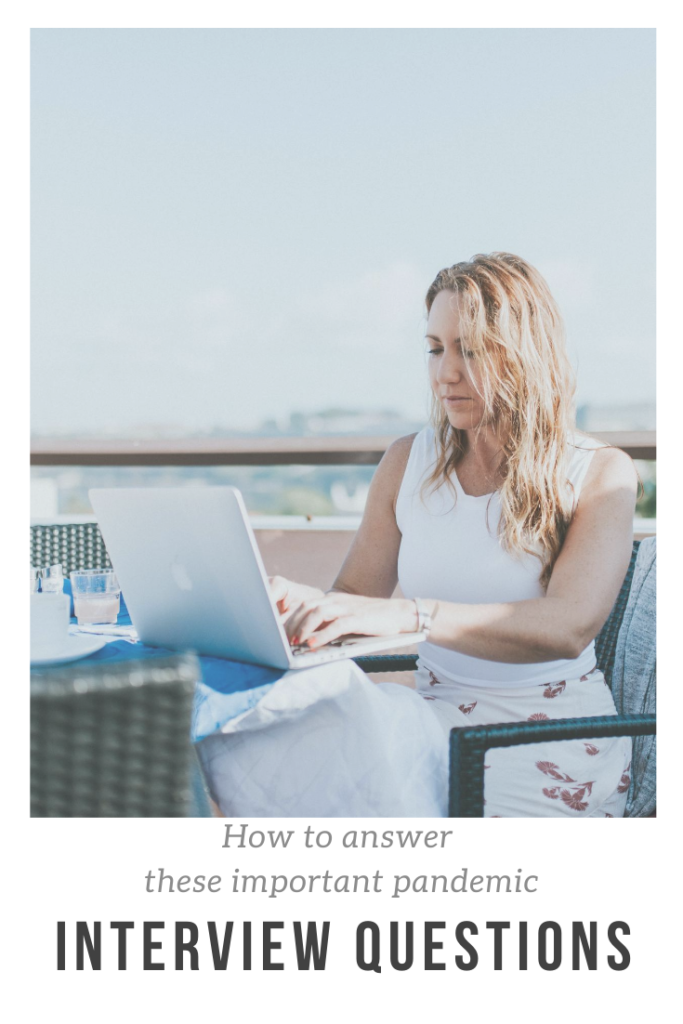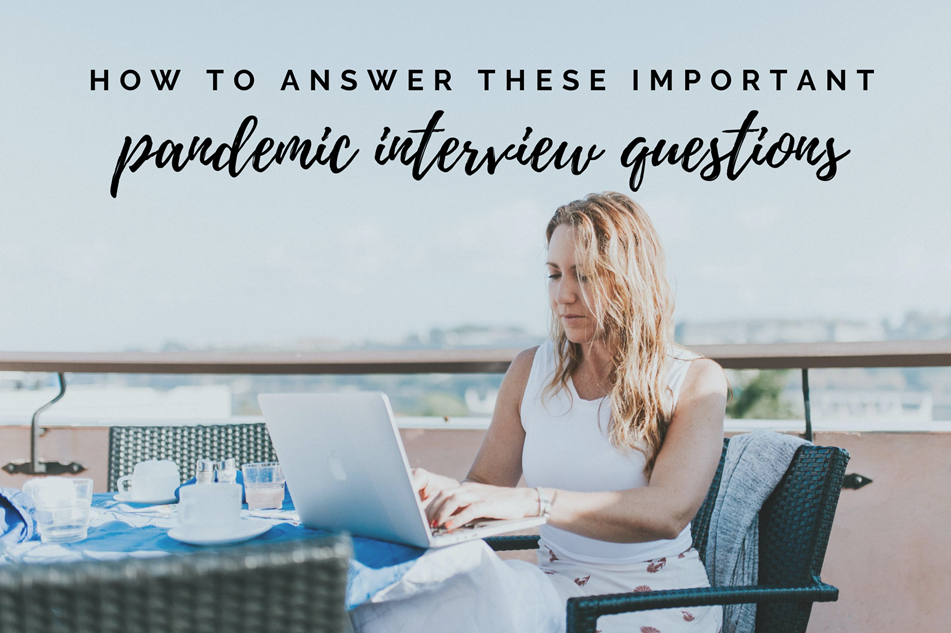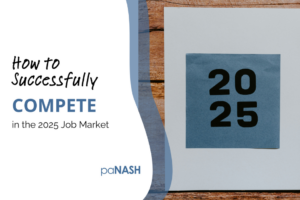|
|
If you’re interviewing for a new job due to a COVID-related job loss, you want to of course prepare for commonly-asked interview questions. But you also need to prepare for some new interview questions brought on by the current pandemic.
These pandemic interview questions could include:
- What did you do with your time while laid off or furloughed during the pandemic?
- Did you draw unemployment when you could’ve found work?
These are not illegal questions. My friend and colleague Cindy Beresh-Bryant, owner of HR Solutions by Design LLC, verifies these questions not only are legal, but are also very good questions for employers to ask. Therefore, you should be ready for them. Here’s how to answer them.
Answering pandemic interview questions
1. Be honest
First and foremost, always be honest in your answers to these and any other interview questions. Just don’t be too honest. If you didn’t use your time as wisely as you’d intended, you don’t need to go into detail about what you did. No need to say you sat on the couch eating chips and watching Tiger King on Netflix.
But if you’re in an interview, you obviously did something to help you land the interview. And if all you did during your time is conduct a job search, then discuss the efforts you took to help you land the interview. This includes updating your resume and reconnecting with your network through Zoom conversations.
If you have a valid reason for choosing to draw unemployment instead of finding work, be honest and briefly explain. For example, maybe you wanted some time away from work to upgrade your skills by taking online courses. Or you wanted to explore a new career and plan for a career change.
You can even talk about any personal development things you did during quarantine. For example, maybe you worked on a passion project or side hustle, volunteered in your community, exercised more, ate better, or spent quality time with friends and family.
When discussing this, you want to avoid sharing anything too personal that employers legally aren’t allowed to ask you about, or make hiring decisions on. For example, you don’t necessarily want to indicate which organization you were volunteering for, the amount of weight you were trying to lose while exercising, any health issue you were trying to eat better for, or the number of children you have and were spending time with.
2. Show results
In addition to showing how you’ve spent your time during quarantine, you want to show how those activities have made you a better person or better employee.
For instance, have the skills you’ve learned made you better prepared for the job? Have your improved eating and exercise habits given you more energy for work? Have you learned to be more creative and productive from the overall experience?
Results are always of most interest to employers, especially if you can quantify any of your results. Showing your positive results from your quarantine is the same concept I’ve previously discussed about emphasizing the results of your work in your past jobs.
3. Tell your story
These results make you stand out even more when you can tell the story that goes with them. Stories are what make you memorable to the interviewer, because no one else has the same stories as you.
Yes, “we’re all in this together,” and many people are experiencing job loss because of it. But everybody’s stories are different. It’s your unique stories that set you apart from the other candidates and burn a memory into the interviewer’s mind.
To learn how to put your results into a story format, check out my post, “The Secret to Answering Behavioral Interview Questions.”
Conclusion
These are unusual times we’re living in, especially in regards to work. The way work is done is changing fast, and will probably never be the same. The same goes for the hiring process. There will be new interview methods, your job interviews will be remote, and you’ll probably get questions you’ve never had to answer before.
Be prepared for questions like those above, and be aware of the illegal questions you shouldn’t have to answer (i.e. “Have you had any recent health issues?”). (Click here for a complete list of interview questions currently considered illegal.)
Follow the tips outlined here and in the resources below, and you’ll improve your chances of acing your next interview.
Related posts
- Why You Need to Be Ready For Anything in Your Next Interview
- How to Stop Procrastinating During and After the Quarantine
- How to Make Phone and Video Interviews Run More Smoothly
- The Secret to Answering Behavioral Interview Questions
- What Is The Best Way to Describe Yourself in a Job Interview?
- Video resources: Are You Prepared for the Newest Interview Methods?






